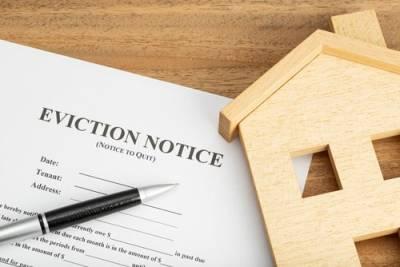Can Filing for Bankruptcy Stop an Eviction?
 People who are considering bankruptcy are often in dire financial straits. The accumulation of multiple forms of debt may have caused a person to get behind on some or all of their payments, especially if they have also experienced a loss of income. As creditors and collection agencies begin calling and seeking repayment, a person may be worried about how to address these issues, but in many cases, they may be focused on more immediate concerns, including the possibility of eviction from their apartment or house due to the nonpayment of rent. In these situations, a person will want to understand how bankruptcy may help them avoid being put on the street.
People who are considering bankruptcy are often in dire financial straits. The accumulation of multiple forms of debt may have caused a person to get behind on some or all of their payments, especially if they have also experienced a loss of income. As creditors and collection agencies begin calling and seeking repayment, a person may be worried about how to address these issues, but in many cases, they may be focused on more immediate concerns, including the possibility of eviction from their apartment or house due to the nonpayment of rent. In these situations, a person will want to understand how bankruptcy may help them avoid being put on the street.
Preventing an Eviction by Filing for Bankruptcy
Filing for bankruptcy is one of the most effective ways to deal with outstanding debts and actions taken by creditors or landlords. As soon as a bankruptcy petition is filed, a form of protection known as the automatic stay will take effect. This will prevent creditors from doing anything to collect what is owed, including contacting the person to ask for payment. The automatic stay will generally apply to evictions, so if a landlord has notified a tenant that they are pursuing an eviction, or if the landlord has begun the eviction process, they will be required to stop these actions during the bankruptcy case. However, if a landlord has already gone to eviction court and obtained a judgment of possession, the automatic stay will not stop them from carrying out this judgment. This shows that the timing of a bankruptcy filing is important, and to stop an eviction, a person will need to file their bankruptcy petition as soon as possible after learning that their landlord is planning to take legal action against them.
Addressing Evictions Through Chapter 7 or Chapter 13 Bankruptcy
During the bankruptcy process, a person will want to determine how to address their debts and avoid consequences for failing to pay what they owe. In cases involving evictions, a landlord will usually be able to proceed with an eviction unless all rent that is owed is paid in full. Because of this, Chapter 7 bankruptcy may not be the best solution for avoiding an eviction. While Chapter 7 may wipe out a person’s debts, their bankruptcy case may be completed within a few months, after which their landlord will be able to resume eviction proceedings. Unless the elimination of other debts frees up funds that may be used to pay past-due rent, a person may be unable to avoid being evicted.
Chapter 13 bankruptcy may be a better solution for addressing past-due rent and avoiding eviction. In this type of bankruptcy, the debts owed by the debtor will be consolidated into a repayment plan, and the person will use their disposable income to make ongoing payments for several years. Past-due rent may be included in the plan, allowing the person to repay the amount they owe to their landlord while also making ongoing rent payments. This can help a person regain financial stability, address all of the debts they owe, and avoid problems such as the loss of a place to live.
Contact Our San Antonio Bankruptcy and Eviction Lawyer
If you are facing the threat of eviction due to financial problems, it is important to act quickly to ensure that you will be able to continue living in your home. At the Law Offices of Chance M. McGhee, we can help you understand your options for filing for bankruptcy, and we will work to ensure that you will be able to address the financial issues that have affected your family. Contact our Schertz eviction defense attorney at 210-342-3400 to schedule a complimentary, confidential consultation.
Sources:
https://www.law.cornell.edu/uscode/text/11/362#b_22
https://www.law.cornell.edu/uscode/text/11/365#e






